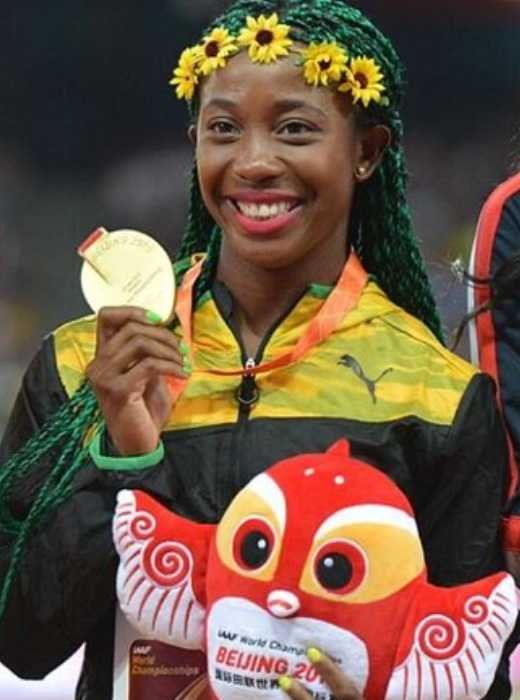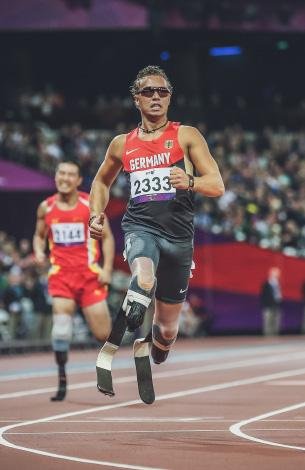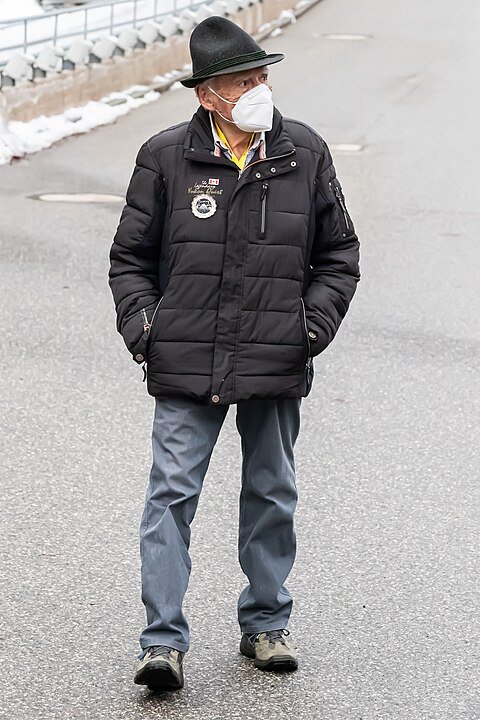Shelly-Ann Fraser-Pryce’s story is one of athletic brilliance, fierce resilience, and unapologetic motherhood. Nicknamed the “Pocket Rocket,” the Jamaican sprinter has become a global icon, rewriting what it means to be a woman in sport. From barefoot races in Kingston to Olympic gold and beyond, her journey is an unforgettable one.
In the concrete-hard streets of Waterhouse, Kingston, a five-foot-nothing girl with boundless energy used to race the neighborhood boys barefoot. No starting blocks. No fancy spikes. No nutritionists or strength coaches. Just raw talent and a heart that refused to acknowledge impossibility.
Two decades later, that same girl would stand atop Olympic podiums, redefine the boundaries of women’s sprinting, and become Jamaica’s most decorated female athlete of all time.
This is the story of Shelly-Ann Fraser-Pryce – the “Pocket Rocket” – whose explosive starts and indomitable spirit launched her from the depths of poverty to the pinnacle of athletic greatness.
Shelly-Ann Fraser-Pryce: From Barefoot Races to Olympic Gold
The Kingston sun beats down mercilessly on the zinc rooftops of Waterhouse. It’s an inner-city community where dreams often get swallowed by circumstance, where poverty isn’t just a word but a daily battle. Here, in the early 1990s, a young Shelly-Ann Fraser-Pryce raced through childhood with the odds stacked firmly against her.
Raised by her single mother, Maxine Simpson, alongside her two brothers, Omar and Andrew, Fraser-Pryce experienced the kind of scarcity that shapes character – for better or worse. Food was often limited and repetitive. Proper running shoes? A luxury beyond reach. While her mother worked tirelessly as an unlicensed street vendor to provide for her children, young Shelly-Ann Fraser-Pryce was already showing signs of something special.
“I remember racing barefoot in primary school,” she would later recall in interviews. “Not because it was trendy or gave me better ground feel – but because we couldn’t afford shoes.”
Her natural talent caught attention at Wolmer’s High School for Girls in Kingston, where she began participating in organized track and field. At 16, she claimed bronze in the 100 meters at the Inter-Secondary Schools Boys and Girls Championships – a competition that has launched the careers of virtually every Jamaican sprint star.
But unlike the clear trajectory we often romanticize in sports narratives, Shelly-Ann Fraser-Pryce’s path wasn’t straight or assured. Even after winning the 200 meters at the Jamaican Under-18 Championships in 2002 and helping secure victory for Jamaica’s junior relay team at the Central American and Caribbean Junior Championships, she remained uncertain about pursuing athletics professionally.
The realities of Waterhouse demanded immediate survival, not long-term athletic ambitions. Dreams, after all, don’t put food on the table.
Turning Point: The MVP Track Club
The turning point came when Fraser-Pryce joined the MVP (Maximising Velocity and Power) Track Club at the University of Technology, Jamaica, under the guidance of coach Stephen Francis. It was here, under structured training and expert coaching, that her raw talent began crystallizing into world-class potential.
In June 2007, Shelly-Ann Fraser-Pryce clocked a personal best of 11.31 seconds to finish fifth in the 100 meters at the Jamaican National Senior Championships. While this didn’t qualify her for the individual event at the 2007 Osaka World Championships, it earned her a spot as a reserve for Jamaica’s 4×100 meters relay team – her first taste of the international stage.
“Being selected for that team changed everything for me,” Shelly-Ann Fraser-Pryce has said. “It wasn’t just about wearing the national colors – it was about realizing I belonged there.”
This belonging would be emphatically confirmed the following year.
Beijing 2008: The World Meets The Pocket Rocket
The 2008 Beijing Olympics. The Bird’s Nest Stadium buzzes with anticipation for the women’s 100-meter final. The world’s attention is fixed on more established names. Fraser-Pryce, largely unknown globally, takes her place in the blocks.
What happened next would rewrite Jamaican athletic history.
A blistering start – always her specialty – followed by pure power and determination down the straight. When she crossed the finish line in 10.78 seconds, Shelly-Ann Fraser-Pryce became the first Caribbean woman to win Olympic gold in the 100 meters. The girl from Waterhouse had arrived on the world stage in spectacular fashion.
Her triumph extended beyond the 100 meters, claiming silver medals in both the 200 meters and 4×100 meters relay. Jamaica erupted in celebration. Upon her return home, she was honored with the Jamaican Order of Distinction and The Prime Minister’s Youth Award for Excellence in Sports.
It was around this time that a journalist bestowed upon her the nickname that would become synonymous with her career: “Pocket Rocket” – an apt description of her petite five-foot frame combined with explosive speed.
“I’ve always been small,” she once joked in an interview. “But I’ve never thought small.”
Overcoming Setbacks and Injuries
Great careers aren’t defined by victories alone but by how athletes respond to adversity. Fraser-Pryce’s resilience would be tested multiple times throughout her career.
In 2010, she received a six-month suspension after testing positive for oxycodone, a painkiller she had taken for a toothache. Rather than making excuses, she accepted responsibility for the oversight – a demonstration of character that earned respect from the athletic community.
Physical challenges proved more persistent. Leading up to and during the 2016 Rio Olympics, she battled a toe injury that severely hampered her preparation and caused considerable pain during competition. Despite this, she claimed bronze in the 100 meters and silver in the 4×100 meters relay—medals that, considering the circumstances, showcased her extraordinary mental fortitude.
“Pain is temporary,” she said after Rio. “But giving up on yourself lasts forever.” More recently, a knee injury in 2023 delayed the start of her season, followed by a hamstring injury at the Budapest World Championships. Each setback became another opportunity to demonstrate her legendary resilience.
Redefining Motherhood in Elite Sports
In 2017, Fraser-Pryce announced news that sent ripples through the track world: she was pregnant. In a sport where female athletes often face pressure to choose between motherhood and competition, many assumed this signaled the end of her career. After all, she was already approaching 30 – considered past prime for female sprinters.
Later that year, she and her husband Jason Pryce welcomed their son, Zyon. Just ten weeks after giving birth, Fraser-Pryce was back in training, determined to defy conventional wisdom about motherhood and elite athletics.
The comeback wasn’t seamless. She openly discussed the doubts and challenges she faced, particularly struggling to regain her explosive power out of the blocks – once her signature strength.
“There were days when my body felt foreign to me,” she admitted. “When I wondered if I was chasing something that wasn’t possible anymore.”
But at the 2019 World Championships in Doha, Fraser-Pryce silenced every doubter in spectacular fashion. At 32, she claimed her fourth 100 meters world title in a blazing 10.71 seconds – her fastest time since 2013. She became the oldest woman and first mother in 24 years to win a world sprint title.
After crossing the finish line, she embarked on perhaps her most meaningful victory lap ever, joined by her two-year-old son Zyon. “This one,” she declared emotionally, “is a victory for motherhood.”
The image – a champion sprinter holding her toddler while draped in the Jamaican flag – became iconic, challenging stereotypes about female athletes and motherhood in one powerful frame.
The Thirties Renaissance
In a sport where athletes often fade after their twenties, Shelly-Ann Fraser-Pryce has rewritten the rules of longevity. Her thirties haven’t just been about maintaining form – they’ve been about reaching new heights.
At 34, in 2021, she achieved a personal best of 10.60 seconds in the 100 meters – faster than she’d ever run in her supposedly “prime” years. At the Tokyo Olympics (delayed to 2021), she claimed silver in the 100 meters, proving her enduring competitiveness at the highest level.
Perhaps most remarkably, at 35, she won gold in the 100 meters at the 2022 World Championships, becoming the oldest sprinter ever to win a world title. This victory gave her an unprecedented fifth world title in the event (2009, 2013, 2015, 2019, and 2022) – a record unmatched by any sprinter, male or female.
“People keep asking when I’m going to slow down,” she joked after her 2022 victory. “I keep asking them why they’re in such a hurry for me to finish.”
After announcing the Paris 2024 Olympics would be her final competition, injury unfortunately shortened her Olympic farewell. Nevertheless, her career stands as a testament to what’s possible when talent meets determination and defies conventional limits.
Community, Advocacy, and Giving Back
Shelly-Ann Fraser-Pryce’s impact extends far beyond finish lines and medal stands. In 2010, she was appointed as UNICEF Jamaica’s first National Goodwill Ambassador, advocating for children’s rights with a focus on early childhood development, positive parenting, health, and nutrition.
Her commitment to community led her to establish the Pocket Rocket Foundation in 2013, providing academic and athletic support to talented student-athletes from disadvantaged backgrounds. The foundation offers scholarships covering tuition, books, uniforms, travel, and daily expenses – addressing the very barriers she once faced.
She further demonstrated her connection to her roots by establishing The Shelly-Ann Fraser-Pryce Early Childhood Institution in Waterhouse, ensuring children from her community have educational opportunities she lacked.
“Success means nothing if you forget where you came from,” she often says. “And it means even less if you don’t help others get to where you are.”
Her contributions have been recognized with numerous honors, including being conferred with the title Ambassador at Large for Jamaica with diplomatic status in 2014 and receiving the Keys to the City of Kingston in 2024.
The Legacy of a Sprinting Icon
In February 2024, Fraser-Pryce went viral for an unexpected reason: demolishing the competition at her son’s school sports day parent race – a lighthearted moment that perfectly encapsulated her competitive spirit and continued excellence.
As she prepares for life beyond competitive sprinting, Fraser-Pryce’s legacy is secure. Her record-breaking achievements – eight Olympic medals (including two golds), ten World Championship titles, and consistent excellence spanning three decades – place her among the greatest sprinters of all time.
But numbers and medals tell only part of her story. Her journey from Waterhouse to worldwide acclaim represents something far more profound: the triumph of human spirit over circumstance, the refusal to be defined by limitations, and the courage to redefine what’s possible.
In 2019, Fraser-Pryce co-authored a children’s book titled “I Am a Promise,” sharing her life lessons to inspire young readers. The title perfectly captures her essence—not just as an athlete, but as a symbol of possibility.
For a girl who once raced barefoot in the streets of Kingston to become one of the most decorated sprinters in history – all while standing just five feet tall in a sport that typically favors taller athletes – is testament to her extraordinary talent. But to return to the pinnacle of that sport as a mother in her thirties, shattering conventional wisdom about female athletes along the way, speaks to something even rarer: a spirit that simply refuses to acknowledge barriers.
“When people tell me something is impossible,” Fraser-Pryce once said, “that’s usually when I decide I have to do it.”
The Pocket Rocket’s most enduring legacy may be this simple, powerful truth: with enough heart, hard work, and belief, limitations exist only in the mind. Just like the explosive burst out of the blocks that became her signature, Fraser-Pryce has shown that sometimes the most powerful way to overcome obstacles is to simply blast right through them – and take the world along for the ride.
If stories of resilience move you, don’t miss the powerful journey of German powerlifter Matthias Steiner, who captured Olympic gold in Beijing just weeks after losing his fiancée in a tragic accident. His unforgettable medal ceremony, holding her photo close to his heart, remains one of the most iconic moments in Olympic history. Read his story here →
Photo: By Erik van Leeuwen – https://commons.m.wikimedia.org/wiki/File:Women%27s_100_m_podium_Beijing_2015_cropped.jpg#mw-jump-to-license, CC BY 2.5S




